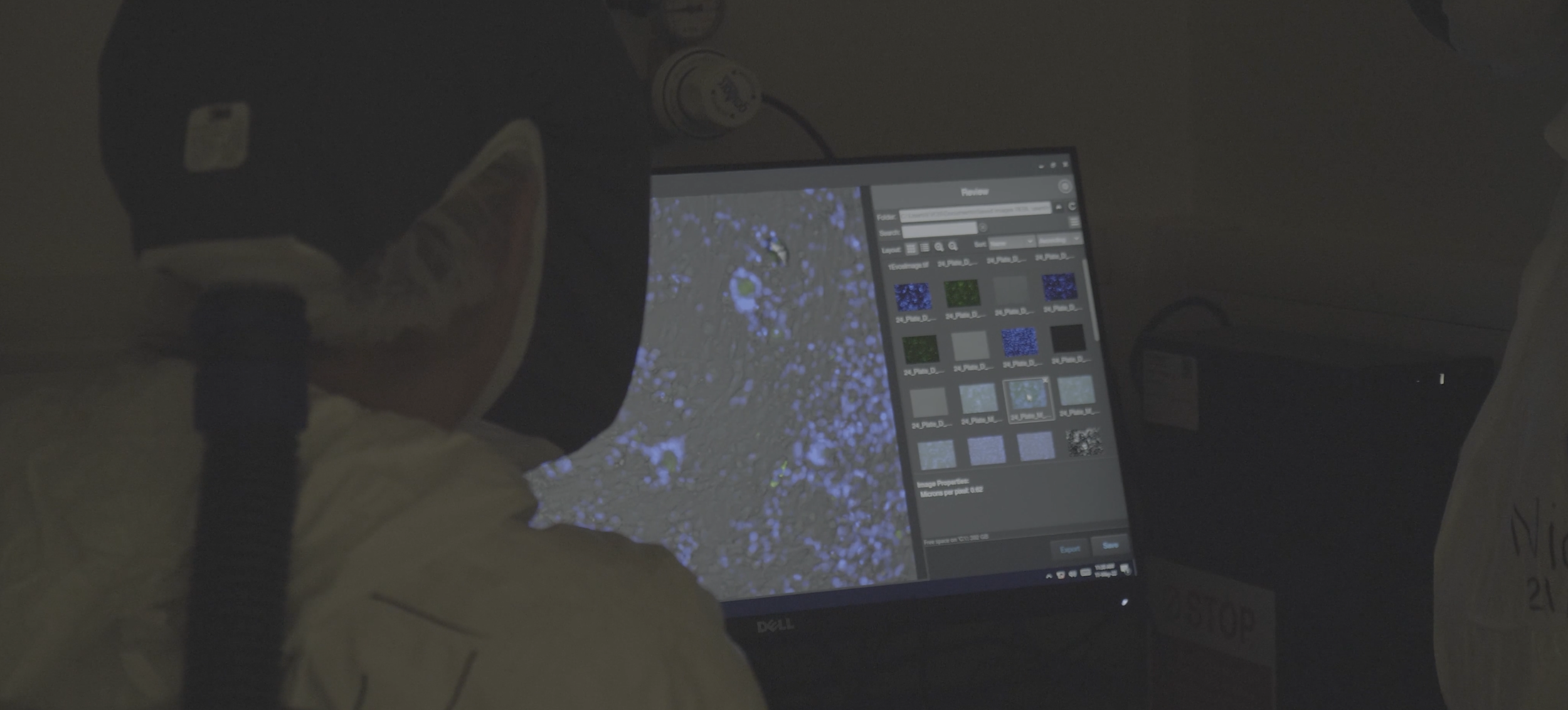
Rescue and Genetic Modification of Viruses
Generation of recombinant viruses using reverse genetics and related techniques:
Within the CVR we have developed reverse genetics systems to generate various viruses from cDNA. We have available systems for SARS-CoV-2, enteroviruses, bunyaviruses (e.g., RVFV, SFTSV, BHAV, BUNV, SBV, OROV, LACV).
For SARS-CoV-2 we have used two approaches to generate recombinant SARS-CoV-2 viruses. Firstly, an infectious genomic cDNA of SARS-CoV-2 of wild type or reporter expressing Wuhan isolate was assembled and placed under the human CMV promoter in a bacterial artificial chromosome (BAC) plasmid. This plasmid was used to rescue infectious virus through direct transfection into mammalian cells [1]. Secondly, and to improve the rescue rate, we used the Transformation-Associated Recombination (TAR) in yeast (Saccharomyces cerevisiae) system to generate further recombinant SARS-CoV-2 viruses of interest. Briefly, recombinant cDNA genomes under the control of the bacteriophage T7 RNA polymerase or human CMV promoter are assembled using a set of overlapping cDNA fragments into yeast-E. coli shuttle BACs following TAR in yeast.
The T7 promoter-carrying BACs isolated from individual yeast clones are then used as a template to in vitro synthesize viral genomic RNA transcripts which in turn are used for infectious virus rescue through transfection into mammalian cells. The yeast-derived CMV promoter-carrying BACs are first purified following transformation into E. coli and then used directly to transfect into mammalian cells for infectious virus rescue.
These methods have proven to be highly successful, allowing us to generate, to date, over 100 viruses carrying genomic mutations of interest or reporter genes at high rate (see below a list of selected viruses). In addition, we have rescued “backbones” for SARS-CoV-2 Alpha, Beta, Gamma, Delta and Omicron Variants of Concerns (VOCs).
The T7 BAC system has also been utilised for the generation of recombinant Enterovirus D68 (EV-D68), where virus is rescued upon transfection of in vitro transcribed RNA into mammalian cells. Sequence encoding a fluorescent protein has been incorporated upstream of the viral open reading frame, allowing sensitive detection of viral infection. Both fluorescence and viral clearance assays can be used to assess antiviral activity of compounds.
We and our academic collaborators are using these reverse genetics-derived viruses to study the phenotypic impacts of virus mutations as they emerge and are established in human populations [2-4]. Furthermore, in partnership with a company, CRUSH has generated attenuated derivatives of Delta and Omicron VOCs as potential vaccine platforms. More recently, we have generated a panel of 17 SARS-CoV-2 B.1 (ancestral) viruses carrying the spike gene from of different VOCs and Variants of Interests. The recombinant SARS-CoV-2 viruses we have generated to date have been incorporated into our drug testing and resistance development pipelines as they represent highly valuable tools in evaluating compound efficacy and breadth in both in vitro and in vivo systems.
References:
1. Rihn et al. (2021). A Plasmid DNA-Launched SARS-CoV-2 Reverse Genetics System and Coronavirus Toolkit for COVID-19 Research. PLoS Biol 19(2): e3001091. https://doi.org/10.1371/journal.pbio.3001091
2. Szemiel et al. (2021). In vitro selection of Remdesivir resistance suggests evolutionary predictability of SARS-CoV-2. PLoS Path. 17(9): e1009929. https://doi.org/10.1371/journal.ppat.1009929
3. Zhou et al. (2022). Mutations that adapt SARS-CoV-2 to mink or ferret do not increase fitness in the human airway. Cell Reports https://doi.org/10.1016/j.celrep.2022.110344
4. Willett et al. (2022). SARS-CoV-2 Omicron is an immune escape variant with an altered cell entry pathway. Nat. Microbiol. https://doi.org/10.1038/s41564-022-01143-7
